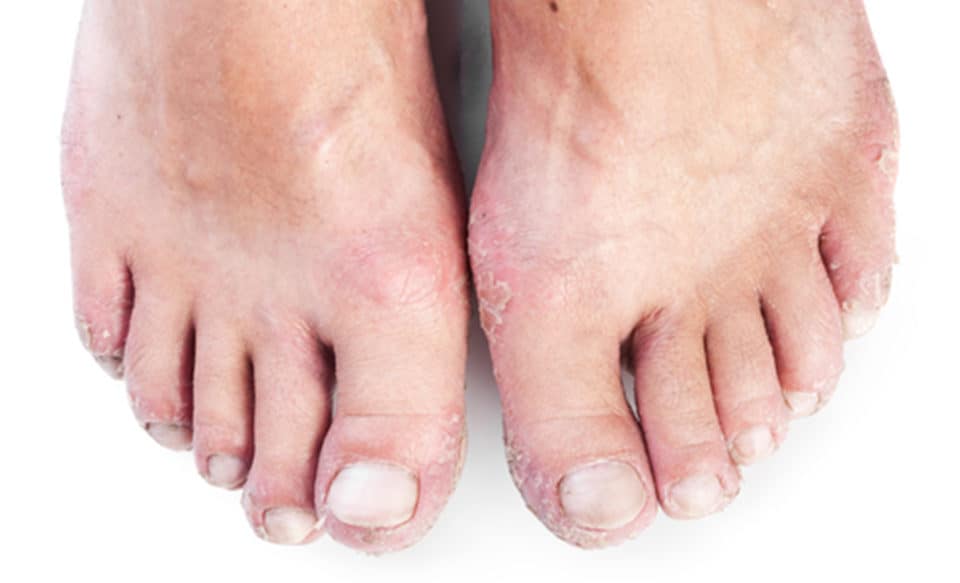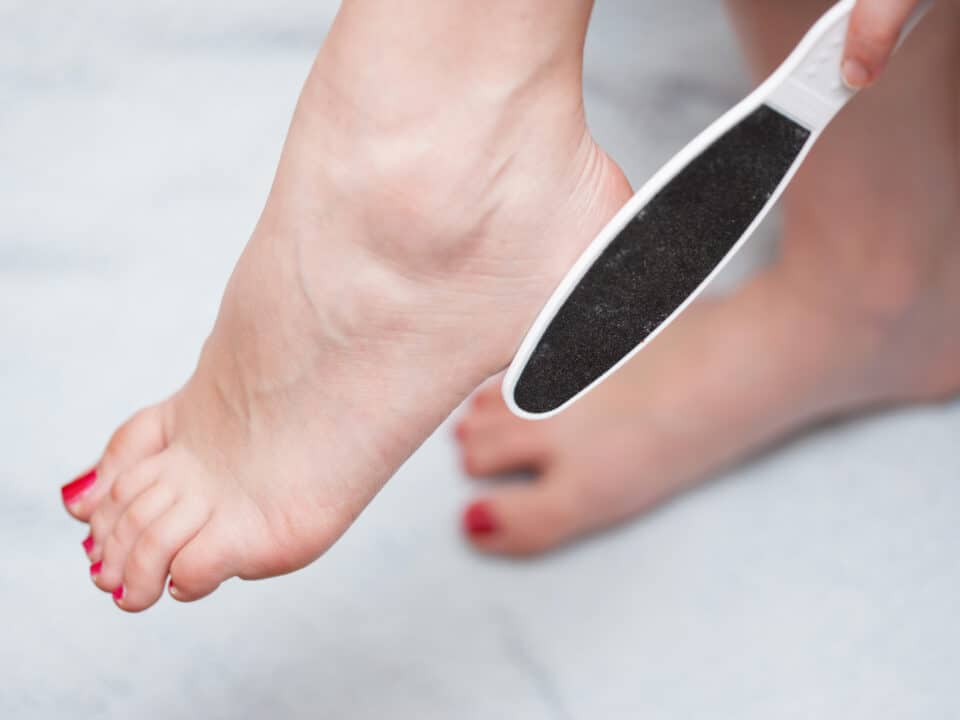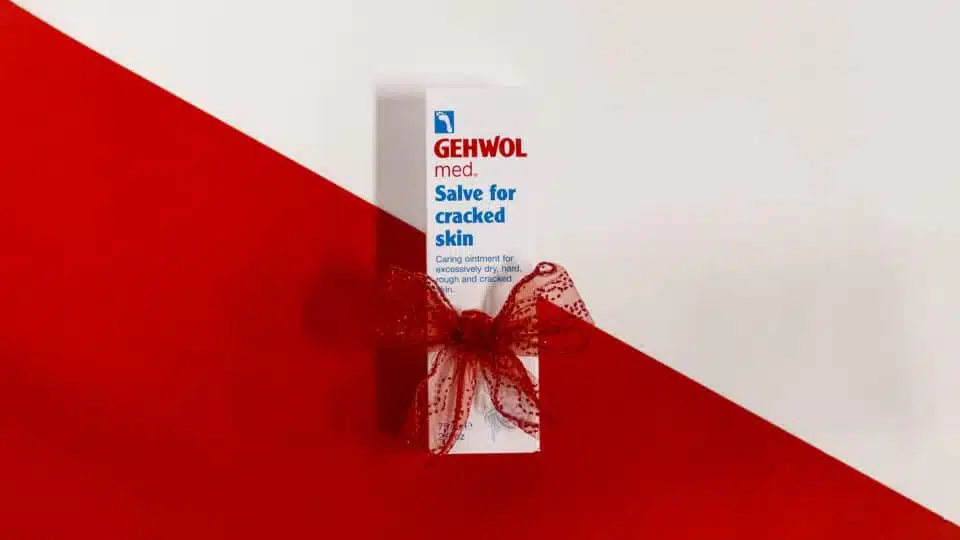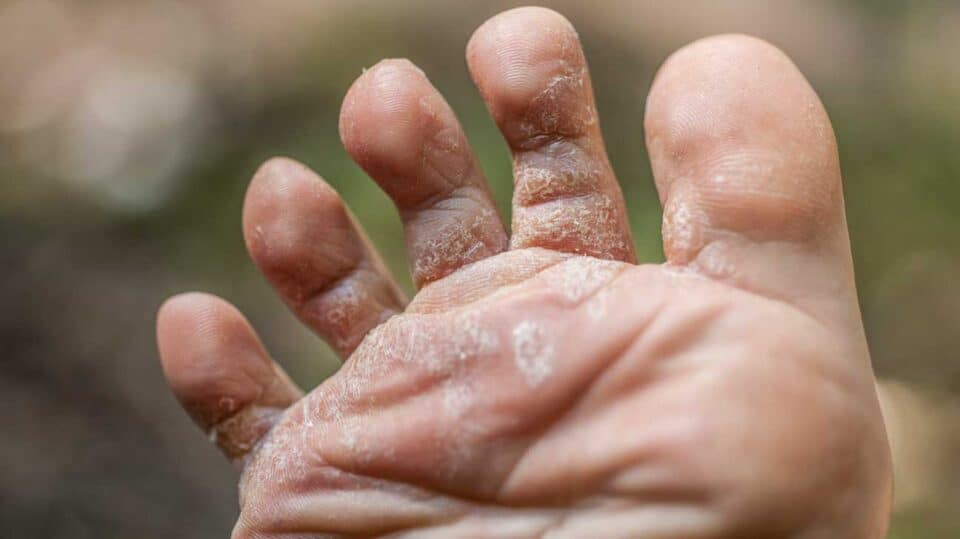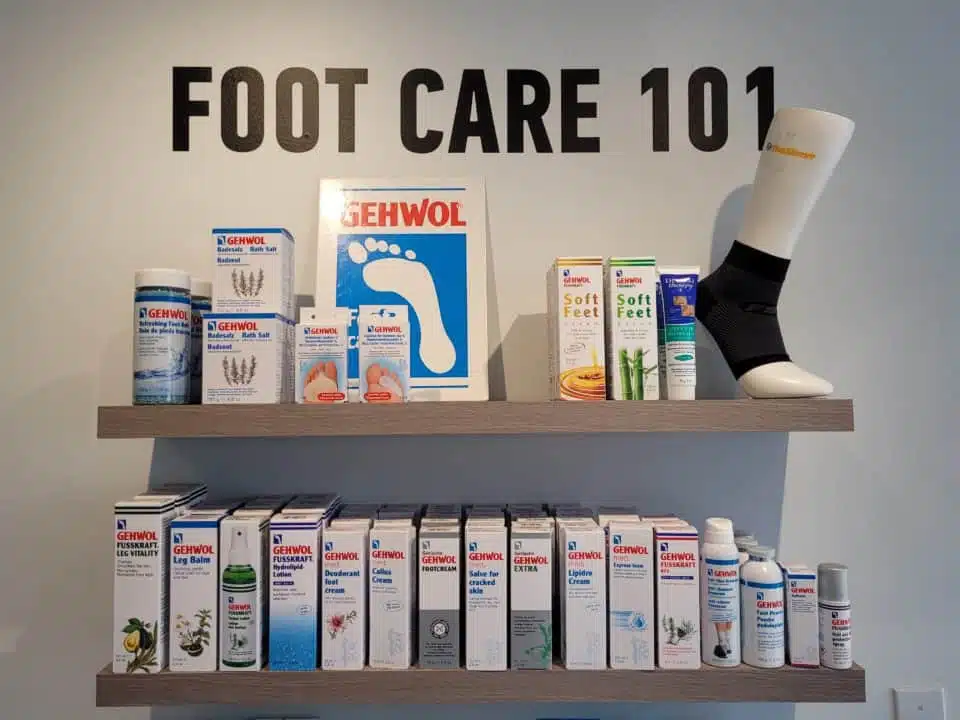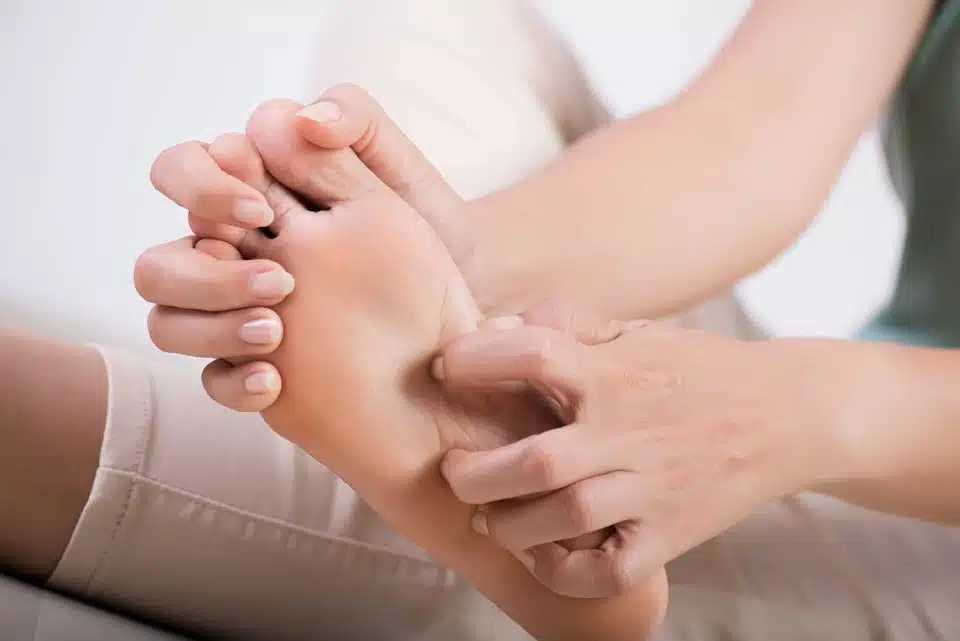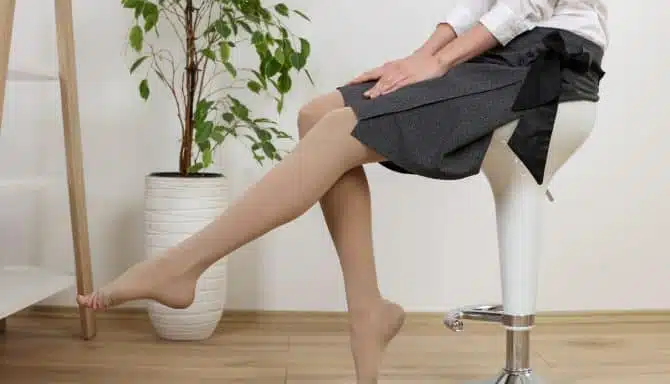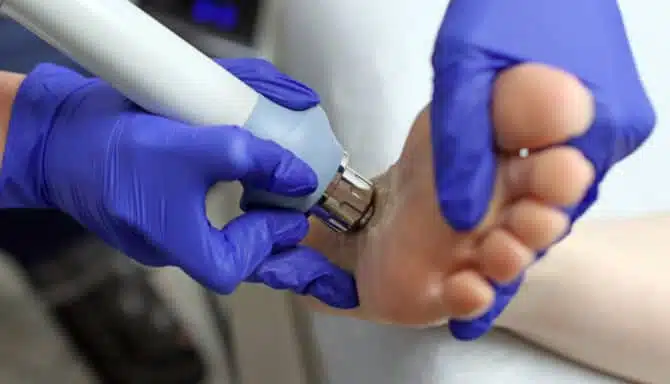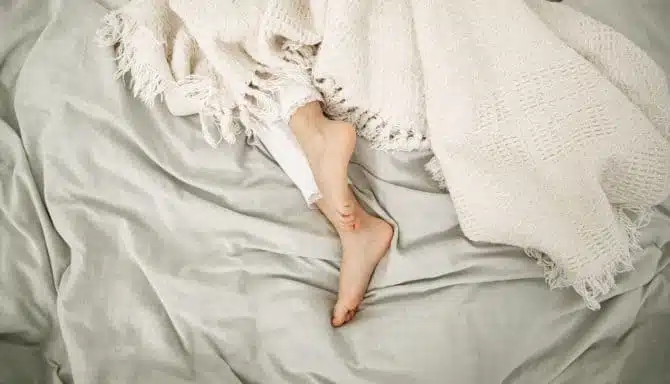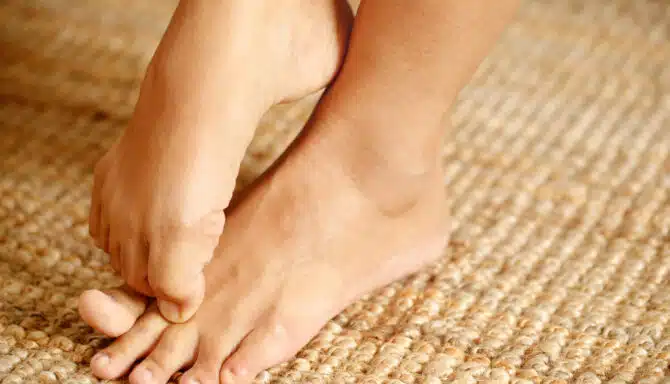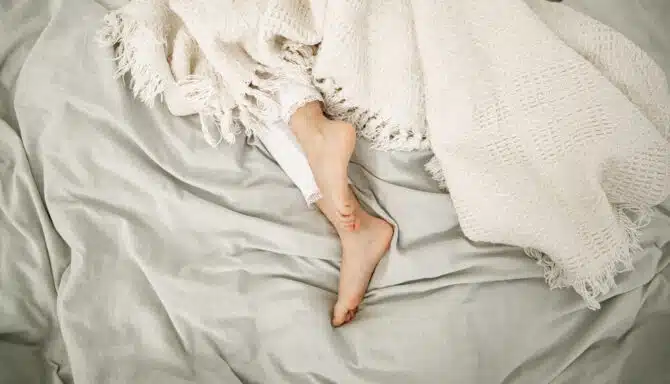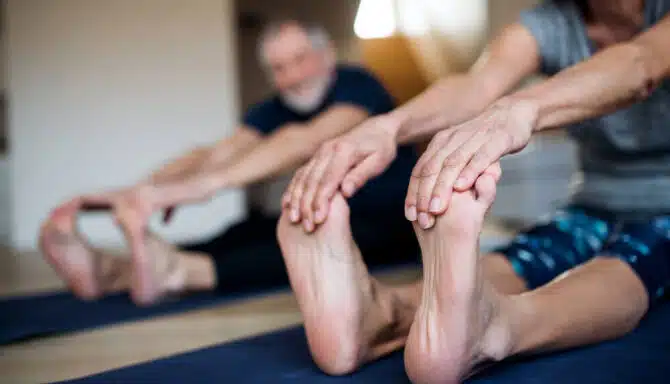December 5, 2024
Seasonal changes can significantly impact diabetic foot health. In the summer, heat and sweating can create challenges, while cold temperatures and wet weather during the winter present other risks. That's why diabetic winter foot care is so important. Today we'll talk about:
You'll learn all about:
The connection between diabetes and foot health
The importance of diabetic foot care in the winter
Our Foot Specialists' top tips for diabetic winter foot care
The Connection Between Diabetes and Foot Health
https://www.youtube.com/shorts/4P3UiDSFzr4
Approximately 800 million adults worldwide have diabetes. It isn’t often immediately recognized as a foot condition on its own, but a serious issue called diabetic foot (a broad term encompassing a wide range of problems) can occur. As a result, foot care should be a top health priority for people with diabetes.
Reduced Blood Flow
People with Diabetes are at risk of developing neuropathy. There are four types, with peripheral symmetric neuropathy (which affects the feet and hands) being the most relevant for diabetes patients.
This condition develops when elevated glucose levels lead to a series of metabolic and vascular changes that impair nerve function. Over time, excess glucose triggers oxidative stress and inflammation, damaging the small blood vessels (microvasculature) that supply the nerves. Without adequate blood flow, nerves are deprived of oxygen and essential nutrients, resulting in their gradual deterioration.
Reduced Sensation
This damage primarily affects sensory nerves, which are responsible for transmitting pain, temperature, and pressure signals to the brain. This progressive loss of sensation makes it difficult for individuals to detect injuries or changes in their feet, such as cuts, blisters, or pressure points. These minor skin issues can turn to diabetic ulcers (open sores or wounds) when ignored.
Reduced Immune Function
Diabetes can also contribute to ulcer formation due to its impact on the immune system. High blood sugar levels over time impair the function of white blood cells, which are essential for fighting infections and promoting wound healing. When blood glucose levels are consistently elevated, it reduces the ability of these immune cells to properly respond to bacteria or other pathogens. This makes it more difficult for the body to prevent wounds that may develop on the feet - including minor cuts, blisters, pressure sores or even calluses - from getting infected. As a result, these small injuries are more likely to become infected, and ultimately lead to diabetic ulcers.
The impaired immune function, combined with poor circulation and reduced sensation, creates a perfect environment for these infections and ulcers to progress, further delaying healing and increasing the risk of severe complications, such as deep tissue infections or gangrene.
Why is Diabetic Foot Care Important in the Winter?
Cold and wet weather can impact everyone's feet, but winter can have a more severe effect on people with diabetes.
Cold Weather and Diabetes: Risk Factors
Low temperatures: Cold air can reduce circulation by constricting blood vessels, particularly in the lower extremities, making it even more difficult for already-compromised vessels to supply the feet with sufficient oxygen and nutrients. This further impairs the body’s ability to heal wounds.
Wet conditions: Snow, rain and sleet getting into your shoes and socks is a recipe for disaster for diabetics. You can develop blisters, sores and infections (which are all ulcer risks) when you let moisture build for too long.
Dry skin: On the other hand, it is also not ideal for your skin to be too dry. By nature, cold air is very dry. Indoor heating makes the air even dryer by extracting humidity. The lack of moisture in the air dries out the skin - including the skin on our feet. This makes calluses form faster and can lead to issues like cracked heels. And since diabetes impairs the body's ability to heal dry skin and cracked heels, the cracks can easily split open, get infected and turn into a diabetic ulcer.
Winter Foot Care for Diabetics
Podiatrists and chiropodists strongly advise individuals with diabetes to take extra care of their feet during the winter months due to the increased risks posed by the elements. If you have diabetes, keep reading to learn the best tips for winter foot care - all recommended by the foot specialists at our Toronto foot clinic.
Practice Skin Care
https://www.youtube.com/shorts/1-Sf43woLLE
Moisturizing your feet regularly is one of the most important steps to combat dry, cracked skin. However, our foot specialists also caution against using harsh creams full of chemicals and fragrances - especially if you have diabetes. Opt for medically respected products with natural ingredients, like Gehwol’s Lipidro and Dermal Therapy Heel Care, that replenish the natural amount of moisture in the skin while also healing cracks.
Only moisturize your feet after thoroughly cleaning and drying. Check out this ultimate guide to moisturizing your feet to master four easy steps. While you're at it, check out the best foot hygiene routine.
Perform Foot Stretches and Exercises
Movement is one of the most effective ways to manage diabetic foot concerns and counteract the impact of cold weather on blood flow. Low-impact cardio exercises such as swimming and walking can assist people in managing blood flow and sensation loss, respectively. Removing the elements of competition and high strain exertion found in other sports, and focusing solely on safety and motion, is a great way to encourage activity.
There are also targeted, low-impact and easy-to-perform foot stretches and exercises designed for people with diabetes. The goal is to stimulate blood circulation as much as possible while still considering any physical limitations. Below are three light exercises you can try from home, and while they may be hard to perform at first, practice makes perfect!
Toe Curls: Sit with your back straight, feet planted, and use a towel to scrunch your toes and pull it toward you, repeating five times per foot.
Figure Eights: Lift one foot while keeping the heel on the floor, move your foot in a "figure eight" motion, repeating five to 10 times per foot in each direction.
Single Leg Lifts: Stand with feet shoulder-width apart, hands on hips, and lift your left foot straight out in front, keeping your leg straight and foot flexed, repeating five times per foot.
To learn more about these exercises, check out the best stretches and exercises for diabetes.
Practice Moisture Control
Keep your feet reasonably dry as much as possible. This may mean changing your socks and shoes several times per day, and thoroughly drying your feet with a towel intermittently. While this can be annoying and easy to forget during the busy winter season, it’s important to stay on top of this with snow, sleet and rain posing an extra risk.
It’s important to not go overboard with too much direct heat penetrating your feet. While cozying up by the fire is safe on occasion, excessive heat can cause even more damage to the nerves. This is due to reduced sensation in diabetic individuals, which makes it harder to notice high heat and burns.
Below are the best ways to manage excessive moisture during the winter:
Wear moisture-wicking socks.
Change socks regularly, especially if they get wet.
Use foot powders and deodorants.
Choose breathable, well-ventilated shoes.
Choose shoes made with waterproof fabrics, like GORE-TEX. This fabric uses a membrane with pores small enough to block water but large enough to allow sweat vapor to escape. This creates a waterproof yet breathable barrier, keeping feet dry and comfortable.
Dry feet thoroughly with a towel after washing, especially between toes.
Avoid tight shoes that trap moisture.
Consider insoles with moisture-absorbing qualities.
Keep feet clean and dry before bed.
Perform Foot Inspections
At-home foot inspections are a good diabetic foot care measure in the winter (and in general) because they help identify potential issues like cuts, blisters, or signs of infection early, when they're easier to treat.
Check for cuts, blisters, or sores: Examine the entire surface of your feet for any visible signs of injury and skin perforation.
Look for changes in skin color or temperature: Check for any redness, swelling, or areas that feel unusually warm or cold.
Check your toenails and between toes: Look for ingrown toenails, cracked toenails and fungal infections,
Try Diabetic Socks
Compression stockings are a great way to enhance blood flow to the legs and feet, but they are not recommended for people with diabetes since they can do the opposite and restrict blood flow too much in the arteries. Instead, ask a podiatrist or chiropodist about diabetic socks and if they might work for you. They have several benefits, which are especially useful in the winter, including:
Antimicrobial treatment which prevents bacterial and fungal growth.
Slightly cushioned footbed for extra comfort and protection.
Loose, non-binding top band which rests comfortably around the ankles or calves, allowing more circulation.
Moisture-wicking and stretchy material.
Smooth toe area to prevent blisters and other skin irritation.
Choose the Right Footwear
https://www.youtube.com/shorts/R7GV0GbKhvQ
For diabetes patients, wearing proper footwear in the winter is essential for maintaining foot health.
Orthopedic shoes are an excellent choice, as they offer extra cushioning, arch support, depth, elasticity, adjustable straps and ample room to reduce pressure points and prevent blisters or sores.
High-quality winter footwear can also be effective, provided it offers warmth, water resistance, and moisture control properties to keep feet dry and comfortable. Here is what you should pay attention to:
Waterproof materials: As you already know, materials like GORE-TEX help maintain dryness by utilizing a membrane with microscopic pores. These pores are small enough to block water molecules, but large enough to allow vapor from sweat to escape. This technology effectively prevents external moisture, like snow or rain, from penetrating the footwear, keeping feet dry. The breathability of GORE-TEX also ensures that perspiration from the feet can escape, which prevents a buildup of moisture inside the shoe. This combination of waterproofing and breathability is essential for preventing cold and damp feet
Adequate insulation: This is crucial for maintaining warmth in winter footwear as insulation helps lock in warm air and retain body heat. Look for insulated winter shoes and boots that also let you maintain moisture control. And remember to let your feet air out after sweating in your boots all day to avoid excessive dampness.
Non-slip soles: For better traction on icy or slippery surfaces to avoid falls.
Cushioning and arch support: To provide comfort and reduce strain on the feet, especially when walking for extended periods.
Roomy toe box: To avoid friction and pressure on the toes, preventing blisters or sores.
Breathable lining: To allow moisture to escape and keep feet dry, reducing the risk of infections.
Adjustable closures: To ensure a secure fit without restricting circulation, particularly important for those with swelling or neuropathy.
In addition, custom orthotics can provide personalized support, improving foot alignment and alleviating pressure, further reducing the risk of diabetic foot complications.
Visit a Foot Specialist
https://www.youtube.com/shorts/qR3s05lUwyc
Our top tip for managing diabetic feet in winter? Book an appointment with a foot care provider, like a podiatrist or chiropodist, at a foot clinic.
At Feet First Clinic, our chiropodists are trained to:
Offer comprehensive education on how cold weather can affect diabetic feet.
Provide skin and nail care.
Provide wound care.
Offer custom orthotics services: assessments, casting, fittings and follow-up guidance.
Thoroughly inspect your feet and pinpoint potential issues (this can be difficult to fully achieve at home, since diabetes also affects eyesight).
Help you understand what winter boots or shoes you should wear, which you can then browse for at our store. A member of our staff can guide you through our options with a complimentary shoe fitting.
Discuss the benefits of products like diabetic socks, orthopedic slippers, moisturizers, and more, which you can then purchase at our store.
Contact our Toronto foot clinic to learn how a foot assessment can be your first step toward healthier, happier feet this winter!
